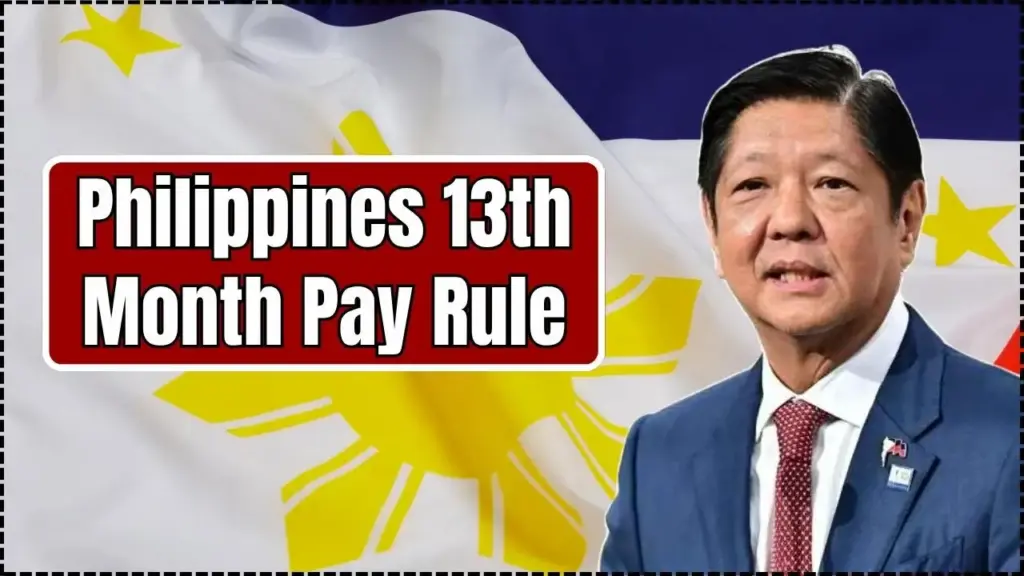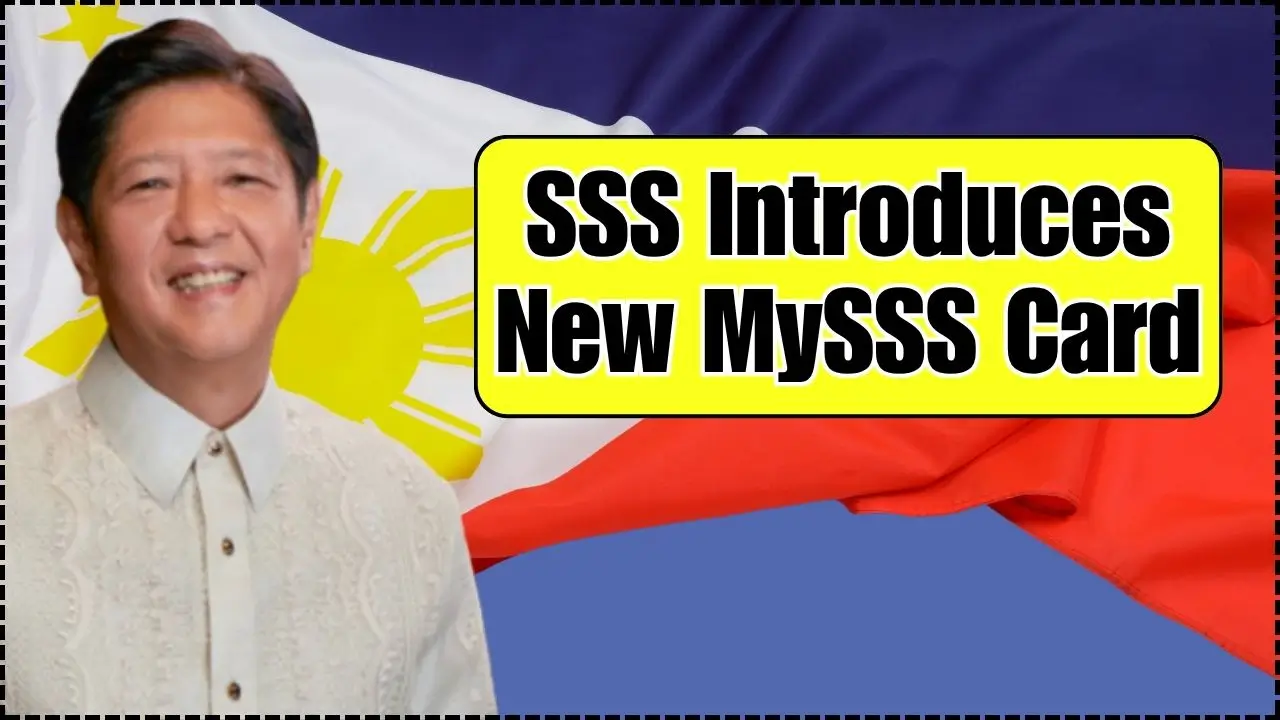All private-sector rank-and-file employees in the Philippines are entitled to a 13th-Month Pay, a mandatory benefit that must be released no later than December 24 each year. Governed by Presidential Decree No. 851, the rule aims to provide workers with added financial support during the holiday season and ensure fair compensation across industries.

Table of Contents
Philippines 13th-Month Pay Rule
| Key Fact | Detail |
|---|---|
| Legal basis | Presidential Decree No. 851 (1975) |
| Coverage | Rank-and-file private sector employees with at least one month of service |
| Computation | One-twelfth (1/12) of basic salary earned during the year |
| Payment deadline | On or before December 24 each year |
| Tax exemption | Up to ₱90,000 under TRAIN Law |
Historical Context and Legal Foundation
The 13th-Month Pay was introduced under Presidential Decree No. 851 signed by President Ferdinand Marcos Sr. in December 1975. Initially, it applied only to employees earning ₱1,000 or less monthly. The measure sought to provide relief amid high inflation and strengthen purchasing power before the holidays.
In 1986, Memorandum Order No. 28 issued by President Corazon Aquino abolished the salary ceiling, effectively extending the benefit to all rank-and-file employees, regardless of income level.
Over the decades, the policy became a cornerstone of labor protection and consumer spending. The Department of Labor and Employment (DOLE) continues to enforce the rule nationwide.
Who Qualifies
Covered Employees
The benefit applies to all rank-and-file employees in the private sector — whether regular, probationary, project-based, part-time, or contractual — who have worked for at least one month within the calendar year.
It covers employees paid monthly, daily, or by results, so long as they earn a basic salary. Even if employment ends before December, the worker remains entitled to a prorated 13th-Month Pay corresponding to months served.
Exemptions
Certain workers and entities are not covered:
- Government employees and personnel of government-owned corporations, unless their operations are primarily private in nature.
- Managerial employees — those with the power to hire, fire, and make policy decisions.
- Workers paid purely on commission, boundary, or task basis with no fixed wage component.
- Employers who already provide a bonus equivalent to or greater than the 13th-Month Pay.
“Employers cannot invoke financial difficulty to avoid compliance,” DOLE Secretary Bienvenido Laguesma stated in a recent press briefing. “This is a legal obligation, not a gratuity.”
Deadline for Payment
Employers must release the full 13th-Month Pay on or before December 24 of each year. Some companies opt to pay half mid-year and the remainder in December, but total payment must be completed by the legal deadline.
For employees who resign, are terminated, or retire before December, the prorated amount must be included in their final pay within 30 days.
DOLE reiterates that no deferments or extensions are allowed. “Failure to release the benefit by December 24 constitutes a violation of labor law,” said Laguesma.
Tax Rules
Under the Tax Reform for Acceleration and Inclusion (TRAIN) Law), the 13th-Month Pay and other benefits (such as Christmas bonuses and productivity incentives) are tax-exempt up to ₱90,000 annually. Any amount beyond that threshold becomes subject to income tax.
Employers must properly compute withholding taxes to ensure employees receive their rightful net pay and to avoid penalties under the Bureau of Internal Revenue (BIR) regulations.
Compliance and Monitoring
Employers are required to submit a 13th-Month Pay Compliance Report to the nearest DOLE Regional Office no later than January 15 of the following year.
The report must include:
- Name and address of the establishment;
- Principal business activity;
- Total number of workers;
- Total amount distributed;
- Date of payment.
Non-compliance can lead to administrative penalties, inspection orders, and legal claims from affected employees. Workers may file a complaint with the National Labor Relations Commission (NLRC) for recovery of unpaid benefits.
Common Misconceptions
| Misconception | Reality |
|---|---|
| The 13th-Month Pay is optional or depends on company generosity. | It is mandatory under PD 851. |
| Managers automatically receive the same benefit. | Managerial staff are excluded, though companies may voluntarily extend it. |
| Bonuses and 13th-Month Pay are the same. | A Christmas bonus is discretionary; 13th-Month Pay is statutory. |
| Freelancers or consultants qualify. | Only employees with an employer–employee relationship are covered. |
Expert Analysis
Economist Dr. Alvin Ang of Ateneo de Manila University notes that the 13th-Month Pay has become “both an economic stabilizer and a social safety net.”
“This policy redistributes purchasing power during the highest consumption period of the year,” he said. “It boosts retail activity and supports small businesses, while ensuring employees share in productivity gains.”
Labor lawyer Atty. Ma. Teresa Santos adds:
“The 13th-Month Pay vests automatically once service is rendered. Employees cannot waive it, and employers cannot offset it against other benefits unless equivalent in amount and purpose.”
Related Links
P1000 SSS Disability Benefit in October 2025 – Check Payment Date & Eligibility
SSS Philippines Unemployment Benefits in Oct 2025 – Check Benefit Amount & Eligibility
Digital Compliance and Modern Payroll
In recent years, DOLE has pushed for digital payment systems and electronic compliance reports to reduce errors and ensure timely crediting. Many companies now use automated payroll software that computes the 13th-Month Pay based on salary records and attendance logs.
This modernization has improved transparency but also raised data privacy concerns, prompting calls for stronger safeguards under the Data Privacy Act of 2012.
Broader Context
The 13th-Month Pay reflects the Philippines’ long-standing policy of worker protection. With inflation and cost-of-living pressures persisting in 2025, labor groups such as Trade Union Congress of the Philippines (TUCP) continue to advocate for stronger enforcement and faster dispute resolution for delayed payments.
The International Labour Organization (ILO) cites the policy as a model of “pro-worker benefit standardization” in Southeast Asia. Comparable systems exist in Thailand, Indonesia, and Vietnam, though coverage varies.
Forward Outlook
As the 2025 payout season approaches, DOLE has reminded employers to budget early and submit compliance reports promptly. Labor advocates continue to urge stricter audits and real-time reporting systems to safeguard millions of Filipino workers relying on this year-end benefit.
“The law is clear,” Laguesma said. “Every worker who has served even one month deserves their 13th-Month Pay — on time and in full.”
















